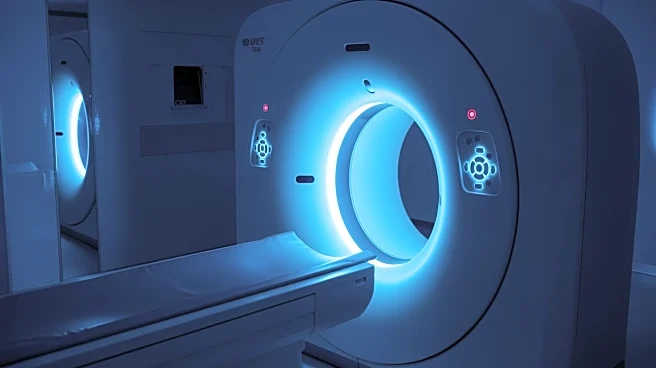Rapid Read • 8 min read
GLP-1 receptor agonists, known under brand names like Wegovy and Zepbound, are revolutionizing the treatment of obesity and type 2 diabetes in the U.S. These drugs mimic gut hormones to suppress appetite and regulate blood sugar, leading to significant health improvements. Since their approval, they have gained popularity, with millions of Americans using them. The drugs are expected to generate substantial economic growth, with estimates suggesting the industry could be worth $100 billion by 2030. Companies like Novo Nordisk and Eli Lilly are leading the charge, while others are developing competitive treatments. The drugs are also being explored for other health conditions, potentially broadening their impact.
AD
The widespread use of GLP-1 drugs is poised to have profound effects on the U.S. economy and healthcare system. By improving health outcomes, these drugs could reduce healthcare costs and increase productivity, potentially boosting GDP by 0.4%. The drugs' high cost, however, could increase Medicare spending significantly. Additionally, the adoption of these drugs is altering consumer spending patterns, particularly in the food and beverage industry, as users tend to spend less on groceries. This shift is prompting companies to adapt by offering healthier food options. The drugs may also impact other sectors, including retail and travel, as consumer habits evolve.
As the GLP-1 drug market expands, pharmaceutical companies are investing in research to develop more effective treatments with fewer side effects. The potential applications of these drugs in treating addictions and other health conditions are being explored, which could further increase their market value. Consumer industries are likely to continue adapting to changing spending habits, with food producers diversifying their product lines. The long-term impact on sectors like restaurants and retail will depend on the consistency of drug use among consumers.
The adoption of GLP-1 drugs may contribute to a two-tier society, where access to these expensive treatments is limited to wealthier individuals, potentially exacerbating health disparities. Ethical considerations regarding the affordability and accessibility of these drugs are likely to arise as their use becomes more widespread.
AD
More Stories You Might Enjoy










